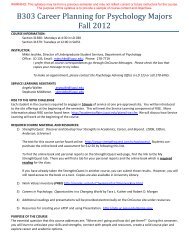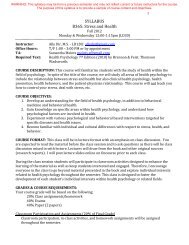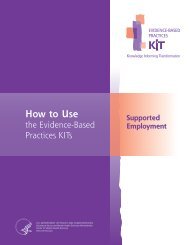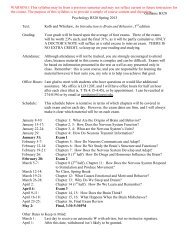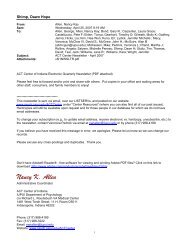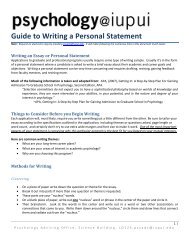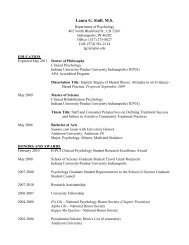Supported Employment: Training Frontline Staff - SAMHSA Store ...
Supported Employment: Training Frontline Staff - SAMHSA Store ...
Supported Employment: Training Frontline Staff - SAMHSA Store ...
Create successful ePaper yourself
Turn your PDF publications into a flip-book with our unique Google optimized e-Paper software.
Through direct contact with an employer, you can<br />
learn what concerns the employer has. You may<br />
learn that the boss’s only real concern is that Mary<br />
had not brushed her hair and did not look quite tidy<br />
enough for her position, which involves greeting the<br />
public.<br />
<strong>Employment</strong> specialists guide and support<br />
employers and suggest ways to help working<br />
consumers improve their performance. When you<br />
meet with the employer, you might explain that<br />
Mary is anxious about returning to work after being<br />
away from work for 5 years.<br />
You could encourage the employer to give Mary<br />
positive feedback about her ability to learn quickly<br />
and to regularly tell her when work is going well to<br />
try to overcome Mary’s initial anxiety.<br />
Let the employer know that you believe Mary’s<br />
confidence will build in time. Employers often find<br />
it helpful to talk with employment specialists to<br />
better understand how to supervise and support<br />
employees.<br />
Doing a job over time<br />
Patrick’s story<br />
Patrick is a 32-year-old single male with schizoaffective<br />
disorder who has been receiving mental health services for<br />
8 years. Today, Patrick shows up at the office saying he is<br />
hearing more voices and is having trouble sleeping.<br />
Patrick says that he has recently been changed to the<br />
evening shift at the convenience store where he works.<br />
Patrick’s employment specialist asks a few more questions<br />
about Patrick’s situation and finds out that the evening<br />
shift is busy.<br />
Often, there are long lines of customers who, at times,<br />
become irritated. On breaks, Patrick has been drinking<br />
lots of coffee, and after work he has been going out with<br />
coworkers to drink beer. He says that he does not want to<br />
go to the state hospital again.<br />
Tackling the issues<br />
Q: If you were Patrick’s employment<br />
specialist, what would you do<br />
In summary, starting a new job can be stressful for<br />
anyone. The process can be even more challenging<br />
for someone who is managing a mental illness and<br />
may not have worked for a while.<br />
As an employment specialist, your job is to<br />
anticipate and try to head off job-start problems.<br />
You can make sure consumers have practical plans<br />
to address common concerns, such as waking up<br />
on time, wearing the right clothes, and traveling to<br />
work.<br />
Q: How would you address supports<br />
related to Patrick, his network, and<br />
his workplace<br />
You can coach consumers to practice the workday<br />
routine ahead of time. You can also work with<br />
consumers’ family, friends, and treatment team to<br />
be sure they have the support they need to get to<br />
and through the critical early days on the job.<br />
Module 34 4 Job Assessment Supports and and Collaborations<br />
Job Finding



